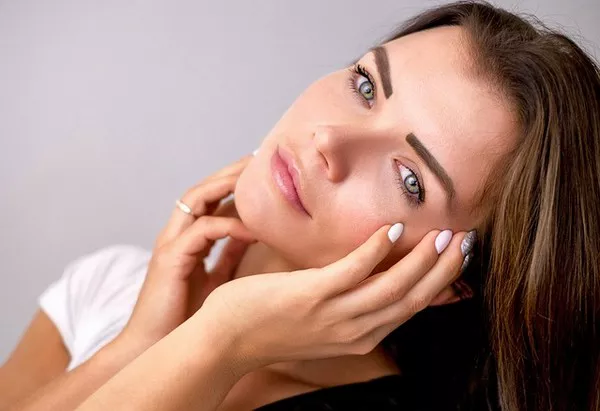Dark spots, often referred to as hyperpigmentation, can appear on the face due to various reasons such as sun exposure, aging, acne scars, or hormonal changes. While these spots are a common concern, there are several effective strategies to fade them and achieve a more even complexion. This article aims to provide a thorough guide on fading dark spots naturally, exploring skincare routines, home remedies, professional treatments, and lifestyle changes to help you achieve radiant and healthy-looking skin.
Understanding the Causes of Dark Spots
Before diving into solutions, it’s crucial to understand the underlying causes of dark spots. Melanin, the pigment responsible for skin color, can become unevenly distributed, leading to hyperpigmentation. Common causes include:
Sun Exposure: UV rays trigger melanin production, leading to sunspots and freckles.
Acne and Inflammation: Post-inflammatory hyperpigmentation can result from acne or other skin traumas.
Hormonal Changes: Pregnancy, birth control pills, and hormonal fluctuations can contribute to melasma or chloasma.
Aging: As we age, the skin’s natural renewal process slows down, leading to the accumulation of pigmentation.
Now, let’s explore a comprehensive approach to fading dark spots naturally.
1. Skincare Routine for Dark Spot Reduction
Cleansing: Begin your skincare routine with a gentle cleanser to remove impurities and prepare your skin for treatment.
Exfoliation: Regular exfoliation helps remove dead skin cells, promoting cell turnover. Look for products containing alpha hydroxy acids (AHAs) or beta hydroxy acids (BHAs).
Vitamin C Serum: Vitamin C is known for its brightening properties. Apply a serum containing stabilized vitamin C to target dark spots and boost collagen production.
Niacinamide (Vitamin B3): Niacinamide helps reduce hyperpigmentation and improves skin texture. Incorporate a serum or moisturizer containing this ingredient.
Retinoids: Over-the-counter or prescription retinoids promote skin renewal, aiding in the fading of dark spots. Begin with a lower concentration to avoid irritation.
Sunscreen: Sun protection is paramount. Apply a broad-spectrum sunscreen with at least SPF 30 daily to prevent further darkening of existing spots and protect against new ones.
2. Home Remedies for Dark Spot Reduction
Lemon Juice: The natural acidity of lemon juice may lighten dark spots. Apply diluted lemon juice to the affected areas and rinse thoroughly.
Aloe Vera: Aloe vera has anti-inflammatory properties. Apply fresh aloe vera gel to dark spots and leave it on for 30 minutes before rinsing.
Green Tea Extract: Green tea contains antioxidants that may help reduce pigmentation. Apply cooled green tea to dark spots using a cotton ball.
Licorice Extract: Licorice extract has skin-lightening properties. Look for products containing licorice extract or apply diluted licorice extract directly to dark spots.
3. Professional Treatments for Dark Spot Reduction
Chemical Peels: Dermatologists use chemical peels to exfoliate the skin, reducing the appearance of dark spots. Various acids, such as glycolic acid, may be used.
Microdermabrasion: This non-invasive procedure removes the outer layer of skin, promoting the growth of new, evenly pigmented skin.
Laser Therapy: Lasers can target specific pigments in dark spots, breaking them down and promoting skin rejuvenation.
Cryotherapy: This involves freezing dark spots with liquid nitrogen, causing them to peel off.
Topical Prescription Medications: Dermatologists may prescribe topical medications, such as hydroquinone or tretinoin, for more severe cases of hyperpigmentation.
4. Lifestyle Changes for Dark Spot Prevention
Healthy Diet: Consume a diet rich in antioxidants, vitamins, and minerals. Foods like berries, leafy greens, and fish can support skin health.
Hydration: Drink an adequate amount of water to keep your skin hydrated and promote overall health.
Stress Management: Chronic stress can exacerbate skin conditions. Practice stress-reducing techniques such as meditation, yoga, or deep breathing exercises.
Sleep: Ensure you get enough quality sleep, as the skin undergoes repair and regeneration during sleep.
Avoid Picking or Scratching: Refrain from picking at acne or scabs, as this can lead to inflammation and potential dark spots.
See Also: What Causes Dark Spots After Acne
Conclusion
Fading dark spots on your face requires a multifaceted approach that combines a consistent skincare routine, home remedies, professional treatments, and lifestyle changes. It’s essential to be patient and diligent in your efforts, as results may take time. If you have concerns about persistent or severe dark spots, consult with a dermatologist for personalized advice and treatment options. By adopting a comprehensive strategy and making informed choices, you can achieve a brighter, more even complexion and boost your confidence in the process.


